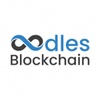An NFT (Non-Fungible Token) smart contract is a programmatic code that defines the rules and properties of a non-fungible token on a blockchain. NFTs are unique digital assets that represent ownership or proof of authenticity of a specific item, piece of content, or digital collectible. These tokens are often used for digital art, music, virtual real estate, in-game items, and other digital or physical assets.
A smart contract development company specializes in designing, coding, integrating, securing, consulting, and maintaining blockchain-based smart contracts, enabling efficient and secure digital transactions and processes.
Here’s a breakdown of the key components and functions of an NFT smart contract:
- Ownership: NFT smart contracts specify who owns a particular token. They store information about the current owner’s wallet address, allowing for the transfer of ownership when an NFT is bought, sold, or traded.
- Metadata: Metadata associated with an NFT, such as the title, description, and any additional information about the digital asset, can be stored within the smart contract or off-chain. Storing it on-chain can make it easier for anyone to access and verify the metadata.
- Minting: The process of creating a new NFT is known as minting. Smart contracts frequently provide functionality that enables users to create new tokens by specifying the details of the token's properties and information.
- Transferability: NFT smart contracts define how tokens can be transferred between different wallet addresses. This includes functions to transfer tokens, approve others to transfer them on behalf of the owner, and check ownership.
- Burn and Destruction: Some NFT smart contracts have the functionality to “burn” or destroy tokens. This action permanently removes the token from existence and is often used when an NFT is no longer needed or relevant.
- Royalties and Secondary Sales: Certain NFT smart contracts incorporate royalty mechanisms, ensuring that creators receive a percentage of the proceeds from secondary sales of their NFTs. This can be implemented through the contract’s code.
- Access Control: Smart contracts have the ability to specify who is authorised to carry out specific tasks, such creating new NFTs or changing information. Access control is essential for maintaining the integrity of the NFT system.
- Interoperability: Some NFT smart contracts adhere to standards like ERC-721 or ERC-1155 (Ethereum-based) or other blockchain-specific standards, allowing for interoperability across various platforms and marketplaces.
- Verification: NFT smart contracts often include functions for verifying the authenticity of an NFT, ensuring that it conforms to the expected standards and properties.
On blockchain platforms like Ethereum, Binance Smart Chain, or others that offer smart contract capabilities, NFT smart contracts are often implemented. These contracts enable the creation and management of NFTs, facilitating their buying, selling, and trading in a decentralized and secure manner. Custom smart contracts may be used by several NFT projects and platforms, each having special features and capabilities catered to a certain use case.
If you have a project in mind related to smart contracts, you may connect with our skilled smart contract developers to get started.


No comments yet